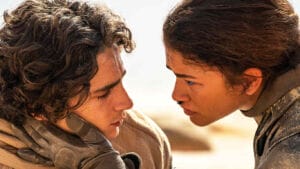Up until the moment the movie started, I had assumed The Legend of Tarzan was a reimagining of Disney’s 1999 animated classic Tarzan — in the same vein as recent live-action remakes like Cinderella and The Jungle Book. Surprisingly, it has nothing to do with any previous incarnations of the Tarzan character; unfortunately, it is nowhere near as good as those Disney remakes.
David Yates’ new film opens with Tarzan as a cultured aristocrat, going by his birth name John Clayton III (that’s Lord Greystoke to you, peasant) and living a wealthy life with Jane in London. Turns out it’s been a number years since Tarzan left the jungles of Africa, married Jane, and inherited his family’s fortune in England. “Ah, that’s nice” I thought. “This won’t be another origin story.”
But then the title appeared and I lost hope. In large dramatic lettering, The Legend of Tarzan was NOT the title that presented itself to the audience. Rather, it was The Legend of Tarzan®, registered trademark symbol and all. Precisely at that moment I began to fear that this film existed by corporate demand rather than a legitimate artistic reason. The movie itself kept that fear alive.
After the title fiasco, The Legend of Tarzan® tells two tales simultaneously. One is Tarzan’s origin story (yay), and the other the story of a Belgian captain trying to lure Tarzan back to Africa so he can kidnap and sell him to a vengeful African tribe leader who will in turn pay the captain in shiny rocks that will fund a king’s efforts to enslave different African tribes and conquer the Congo.
Sound convoluted? It is, and unnecessarily so. It’s rarely hard to follow, but the narrative is so superfluously detailed that the familiar origin story scenes turn out to be the most enjoyable parts of the film.
What’s positive about this jungle adventure?
This version of Tarzan is more true to Edgar Rice Burroughs’ original 1912 novel than any other adaptions in recent memory. Gone are the “me Tarzan, you Jane” Disney days — though such times are frequently mentioned with tongue firmly in cheek. This Tarzan is just as eloquent and civilized as he is powerful and ferocious. Alexander Skarsgârd captures this duality with a performance that’s equal parts sexy and animalistic. You could get lost in his eyes before he beats you to death with the strength of a gorilla.
The plot, while overcomplicated, is decently compelling. The stakes are so high and the themes so dark (slavery, the horrors of war, and honor are common talking points) that the turning points of the narrative are gripping. Add in a brisk pace and there’s no room for boredom.
Margot Robbie, though undeniably talented, has little to do as Jane. Christoph Waltz and Samuel L. Jackson play characters that we’ve seen them play a million times before.
Unfortunately for the capable cast, The Legend of Tarzan® has little to no character development. This is especially damaging when people we don’t care about start forming bonds — we just can’t buy them.
Worst of all, director David Yates lacks his own style. This was evident in his Harry Potter films, which were neither disappointing nor impressive. In The Legend of Tarzan®, Yates apes (pun so intended) the styles of better filmmakers.
He steals the lush color grading of Favreau’s The Jungle Book, spinning-camera conversations out of Iñárritu’s The Revenant, Sam Jackson’s dialogue from a Tarantino film, an enthusiastic villain with a special ability from a Bond film (and it’s Christoph Waltz, no less!), and even the “bad ape has one messed up eye” idea from Matt Reeves’ Dawn of the Planet of the Apes. For a movie that’s been in development for thirteen years, The Legend of Tarzan® never had time to find a distinct personality.
Also, CGI vine swinging has not improved since the fourth Indiana Jones.
★★½ (2.5 out of 5)



